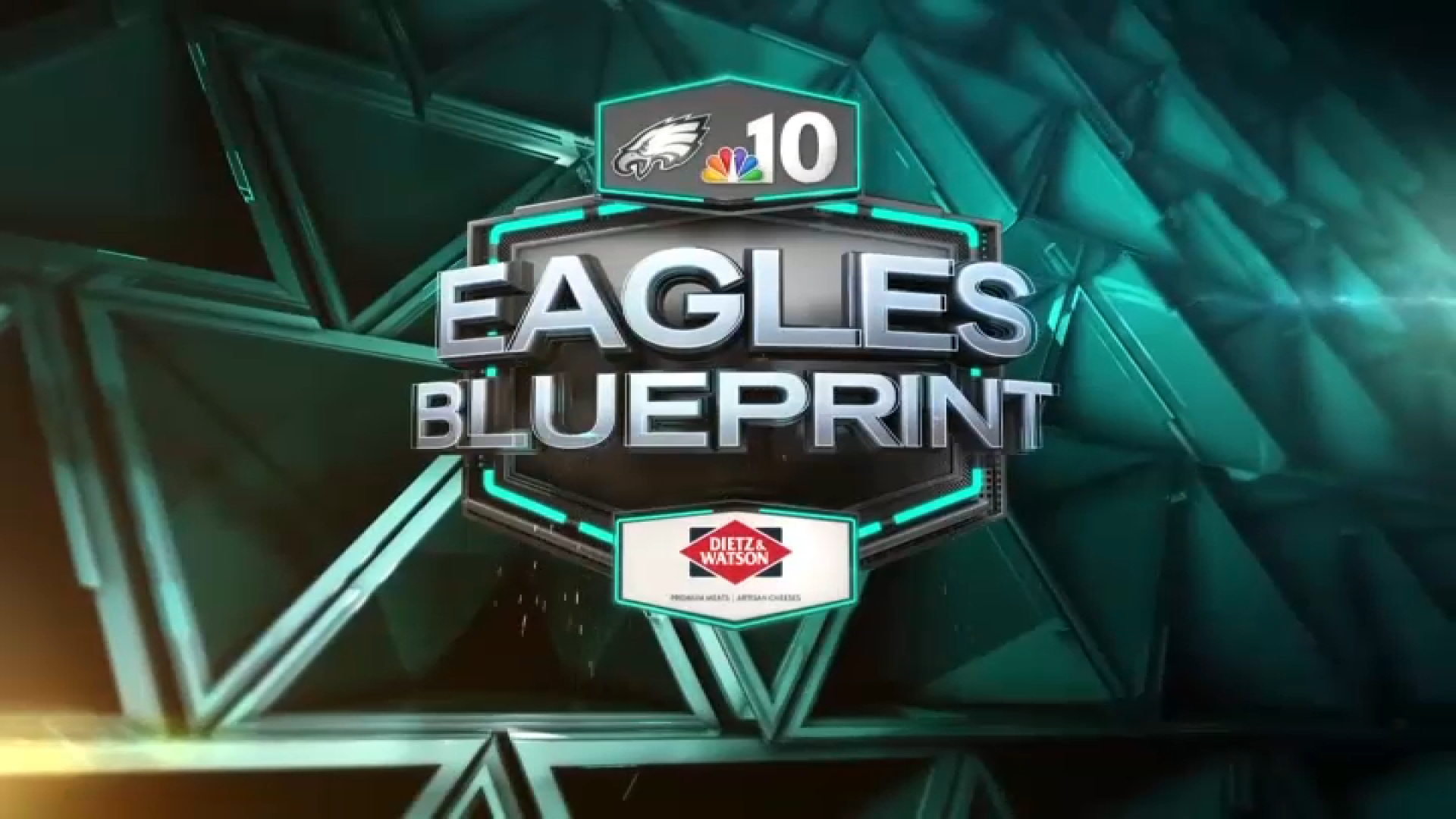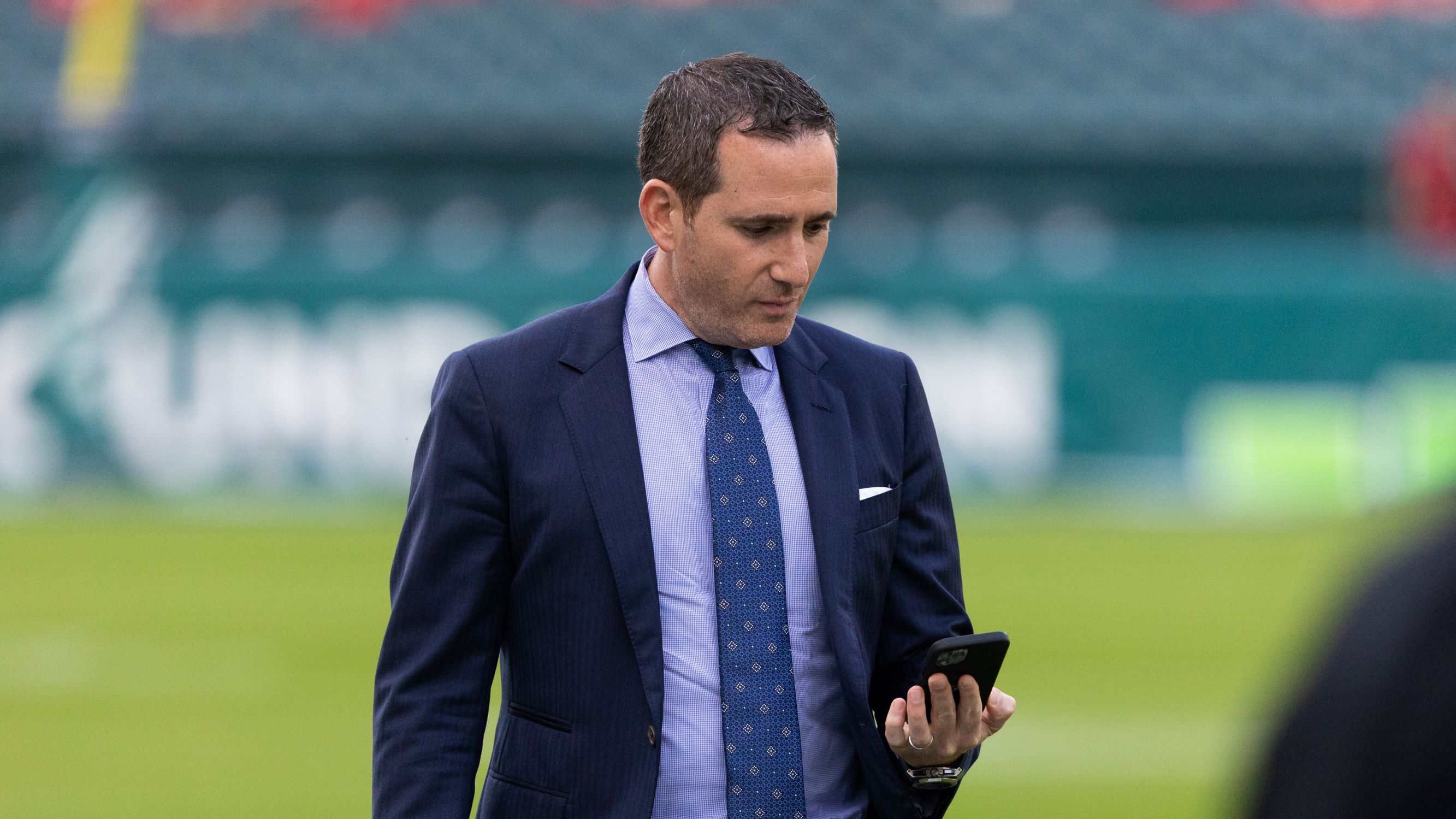The most disturbing thing isn't that Doug Pederson stopped running the football.
The most disturbing thing is why.
Pederson said he abandoned the run simply because the Eagles weren't running the ball well.
"Obviously, I was not pleased with how we ran the ball," he said after the Eagles lost 27-20 to the Chiefs in a game where he called 56 pass plays and 13 running plays - the ratio was 38 to 5 in the second half.
"It's an area that we have to fix."
With 20 hours to reflect, Pederson didn't change his stance:
Philadelphia Eagles
Complete coverage of the Philadelphia Eagles and their NFL rivals from NBC Sports Philadelphia.
"We've got to get the run game fixed," Pederson said at his Monday presser.
But in reality, the Eagles didn't run the football that badly.
At all.
And I for the life of me can't figure out why Pederson believes they did.
How on Earth can you conclude that the running game "needs fixing" when your backs averaged a respectable 4.0 yards per carry, got just 13 carries in the game and just seven in the last 41½ minutes and your presumed starting running back never touched the ball and the only guy who got more than three carries averaged 4.8 yards a pop?
Math. Facts.
Let's take a look at the Eagles' 11 drives with a list of how many running plays and pass plays (passes, sacks and Carson Wentz scrambles) they ran and exactly how many yards the backs got on those running plays:
1) 3 run, 7 pass → 12, 6, 3
2) 3 run, 4 pass → -2, 2, -3
3) 1 run, 6 pass → 6
4) 1 run, 1 pass → 11
5) 1 run, 5 pass → 3
6) 2 run, 5 pass → 8, 3
7) 1 run, 9 pass → 5
8) 1 run, 3 pass →-2
9) 0 run, 3 pass
10) 0 run, 13 pass
11) 0 run, 1 pass
A few things stand out in this break-down.
→ First of all, after the second drive, Pederson called only seven running plays on the Eagles' last nine drives. Throw out the last two drives because the Eagles trailed by 14 points and then had a Hail Mary, and you still have a ratio of 13 runs and 43 passes while this was still a one-possession game.
→ But other than the second drive of the game, when three runs produced minus-three yards, the running game was effective. On the first drive, three runs netted 21 yards. The next five drives contained just six running plays, but they netted 36 yards - that's 6.0 yards per carry. So with the game tied at 13-all with 11 minutes left in the fourth quarter, the Eagles' running backs were averaging 4.5 yards per carry.
The Eagles' final running play of the game was a two-yard loss by Wendell Smallwood with 10 minutes left in the game, and that dropped their average to 4.0, but it was only Smallwood's third carry of the game. Certainly not enough to evaluate him on.
→ Sproles finished with a 4.8 average, which is anything but "struggling," which was Doug's word. So was Pederson's conclusion that the Eagles were "obviously" having trouble running the ball based on Smallwood's four yards on three carries? One of those three was an eight-yard gain, so is he basing that "obvious" conclusion on two carries 34 minutes apart by a backup back who had just three carries in the game?
→ Pederson said Monday one of the main reasons he abandoned the run against the Chiefs was because the Eagles kept finding themselves in 3rd-and-long situations.
Here's his quote:
"You put yourself in a 2nd-and-12 or a 2nd-and-13, and it's hard. Now you're going uphill, and yesterday we had seven 3rd-and-10-pluses and another five 3rd-and-7's and that's unacceptable. We can't be in that many long-yardage situations in these football games, so we've got to focus on the run game."
WRONG.
Those 2nd-and-longs weren't because of the run game! The Eagles actually averaged more yards per play on first down when they RAN than when they THREW!
Their 26 passing first downs averaged 4.8 yards per play, and their eight first-down runs averaged 5.0 yards per play.
More pointedly, 12 of those 26 first-down PASSES resulted in a gain of zero yards or a loss of yardage. That's 46 percent. Only two of the eight first-down runs netted zero or fewer yards - that's 25 percent. And both were runs by the third-string back.
Where were the struggles? The backs averaged 5.0 yards per carry on first down (40 yards on eight runs), so that wasn't the problem. So what was it?
It was imaginary. It did not exist. It was a figment of Pederson's mind.
The only issue was Pederson once again struggling to stick with a running game that was operating at a functional level.
And I don't even know how you evaluate a running game when your last nine series include only seven running plays. How do you make any kind of determination about what's working and what's not working when over the last 40½ minutes of the game, Sproles had just five carries and Smallwood had two?
And if your issue is that Sproles can't handle much more than 10 carries, well then … there are other backs on the roster. But we never saw Blount and we never saw Corey Clement.
It doesn't make sense. It doesn't add up.
Maybe the Eagles' running game really is in need of an overhaul. I certainly agree that this isn't the most dynamic group of backs ever assembled. But you can't determine that from Sunday's paltry sample size.
Why do I keep harping on this?
Because when you don't run the ball, defenses tee off on the quarterback. We saw it Sunday at Arrowhead.
Wentz was sacked a career-high six times, four times in the second half, when the running game wasn't a factor, and he absorbed a number of vicious hits as well.
And here's the really alarming thing.
Players know. They openly questioned Pederson in the locker room after the game.
Lane Johnson: "In order to win games in this league, you have to able to run the ball."
Zach Ertz: "You can't be throwing the ball 40 times in a game."
Brandon Brooks: "I wish we would have ran the ball more. But we didn't."
There's a lot to like about this Eagles team.
Their front four is thunderous. The secondary has played as well as you could hope with a bunch of kids and a bunch of injuries. Carson Wentz looks more and more each week like a budding star. Zach Ertz is off to a great start. Alshon Jeffery is starting to look like a stud. Special teams is as good as anybody's and always will be under Dave Fipp. And this team always plays hard for Pederson.
This could be a playoff team. This should be a playoff team. But it won't be unless Doug gets all of this figured out.



